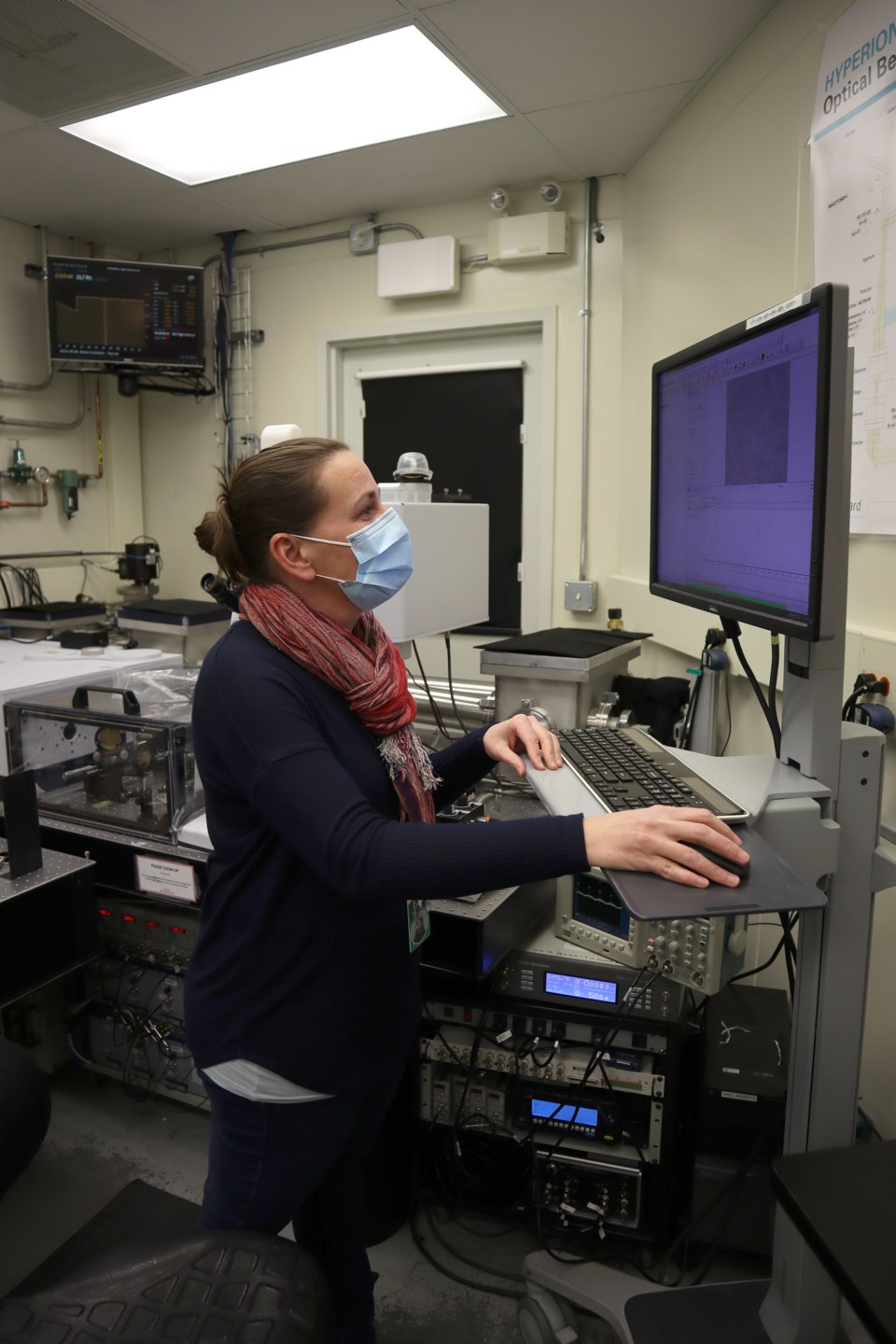SASKATOON – A team of researchers is using the Mid-IR beamline at the Canadian Light Source (CLS) at the University of Saskatchewan to look at biochemical changes in the brain.
Dr. Kendra Furber, assistant professor, UBC Northern Medical Program and the Division of Medical Sciences at the University of Northern British Columbia, is working to pinpoint the causes of brain ageing and ways to prevent or reverse the damage of time.
According to a CLS press release, the “wear and tear” of ageing is often noticed first in our bodies, but our brains also experience changes that make it harder to remember where you left your keys or the name of that acquaintance you ran into at the grocery store.
The Mid-IR beamline at the CLS allows Furber and her team to push the boundaries of their research, helping them to see results in greater detail and to learn more about how changes in the brain impact myelin formation and degeneration.
“Our brains continue to myelinate until midlife and then the volume and integrity of that myelin starts to decline. This often correlates with deficits in memory and cognitive processing speed,” Furber said.
Furber has focused her attention on specialized cells in the brain that form the myelin sheath. The myelin-producing cells look a little bit like an octopus with multiple “tentacles” that wrap around our neurons, providing them with the insulation they need. As they age, the “tentacles” wither, leaving cell connections unprotected. They hope to understand why the myelin starts to decline with age.
“At some point some of that myelin is lost and we get less and less efficient at repairing it,” Furber said. “It's kind of this balance and it gets tipped to more myelin loss as we age—we're not making those new connections or wrapping up the nerve processes as well.”
The brain likes to rewire pathways when we are learning new skills, what scientists refer to as neuroplasticity. As we age, the brain is not as flexible and rewiring pathways becomes more difficult, leading to changes in learning and memory.
Furber and her team are currently looking at strategies to help make our brain cells more resilient to environmental stress. Data shows that simple things like exercise, sleep, and a proper diet may help keep our myelin healthy.
“We're interested in fat metabolism and diet and to understand if those things can make a difference in making those myelin-producing cells more resilient to damage or degeneration,” Furber said. The team found that there is distinct changes in the fat composition in the myelin with age which has been recently published in the scientific journal Neurochemical Research. To find the root cause, the researchers are further investigating the important roles of certain genes in the myelination process.




